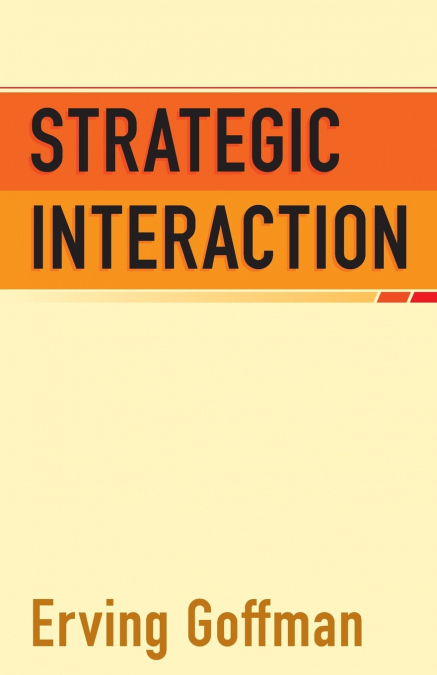
 Librería Perelló (Valencia)
Librería Perelló (Valencia)
 Librería Aciertas (Toledo)
Librería Aciertas (Toledo)
 Librería Elías (Asturias)
Librería Elías (Asturias)
 Donde los libros
Donde los libros
 El AlmaZen del Alquimista (Sevilla)
El AlmaZen del Alquimista (Sevilla)
 Librería Kolima (Madrid)
Librería Kolima (Madrid)
 Librería Proteo (Málaga)
Librería Proteo (Málaga)
'The broad topic is communication directed specifically to situations like espionage and to situations like international politics. . . . Goffman deals with the topic descriptively, draws on a wide variety of sources, and uses analogy to demonstrate, clarify, and explain.'--ChoiceThis book deals with the calculative, gamelike aspects of human interaction. Erving Goffman examines the strategy of words and deeds; he uses the term 'strategic interaction' to describe those gamelike events in which each player’s situation is fully dependent on the move of his opponent and in which each player knows this and has the wit to use his awareness.Expression games are always only a party of strategic interaction. The author uses vivid examples from espionage literature and high-level political maneuvers to show how men mislead each other in the information game.In strategic interaction, the player’s move is the central concern, and expression games are secondary, for as Goffman makes clear, often when it seems that a man’s word sets off the action, the action has already been completed.Those who gamble with their wits, and those who study those who do, will find this analysis important and stimulating.